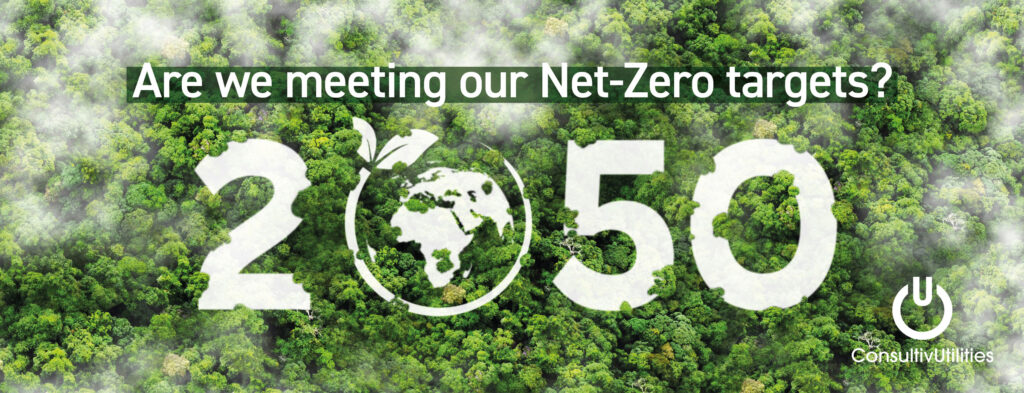
Reaching our Net Zero targets requires ongoing commitment from companies and countries alike. But how are we all faring?
The welfare of our planet is something that businesses, individuals and governments should all be concerned about. The journey to Net Zero is one of the many initiatives put in place to try and mitigate the damage caused by climate change, and it requires companies to balance the number of greenhouse gases they emit with the amount they remove. When the emissions you generate are equal to what you remove from the atmosphere, you’ve reached carbon neutral status – also known as Net Zero.
We’re going to take a closer look at Net Zero, asking how the UK is faring and what more businesses can do to ensure they meet the necessary guidelines.
The Net Zero agreement
Net Zero by 2050 is the goal for countries all around the world. In the UK, the ‘Powering Up Britain’ strategy focuses on boosting clean energy production to reduce the amount of greenhouse gas emissions like carbon dioxide and methane.
Under the 2015 Paris Agreement, 197 countries pledged to stop future global temperature rises going beyond 1.5C to avoid the worst impacts of climate change, and scientists believe Net Zero must be reached by 2050 to achieve this.
How is the UK faring?
The UK’s plan to reach Net Zero includes:
- Insulating 300,000 of the UK’s worst insulated homes
- Removing 20-30 million tonnes of carbon from the atmosphere by 2030
- Funding £350 million into electric vehicle charging facilities
- Producing 25% of UK electricity through nuclear power by 2050, and
- Speeding up planning on wind farms and solar energy sites.
Climate experts and opposition parties have criticised the government’s plans and actions regarding Net Zero, saying more significant policies are needed. According to the Office of National Statistics, business spending on energy varied between 3 and 25% across industries, showing huge disparities in Net Zero prioritisation.
What challenges does the Net Zero initiative face?
Controversy surrounds the way some countries might try to reach Net Zero targets. For example, a nation may reduce energy-intensive industrial work like steel production to reduce emissions. However, if that move simply means that the country will source steel from elsewhere in the world where the emissions generated are the same (or more), we as a global society are no closer to reaching the ultimate goal.
Additionally, some experts have criticised schemes where rich countries pay poorer countries to switch to cleaner fuels. This then allows richer countries to avoid reducing their fossil fuel usage.
For businesses, the top three challenges of Net Zero (according to Lloyds Banking Group) are:
- The costs involved
- Controlling supply chain emissions
- Measuring impact
Research suggests that 20% of businesses believe that “implementing change being costly” prevents them from making meaningful sustainability changes.
How can businesses achieve their sustainability goals?
Understanding your energy output is the first step to controlling it, which is why a full energy audit is necessary. Investing in an audit can help you understand where your energy costs and emissions are coming from. You can then identifying key areas where significant changes can be made.
All energy efficiency changes are worthwhile, whether big or small. From switching to LED lightbulbs to increasing stakeholder collaboration, reducing emissions within your value chain is an ongoing effort.
Seeking support from energy experts will help you with your energy emissions and spending, showing you where to make savings.
Looking for help and advice on effectively managing your business energy? You’re in the right place. Reach out to a team member today and find out how we can help you. Click here to get in touch with the team at Consultiv Utilities.
Categories:
